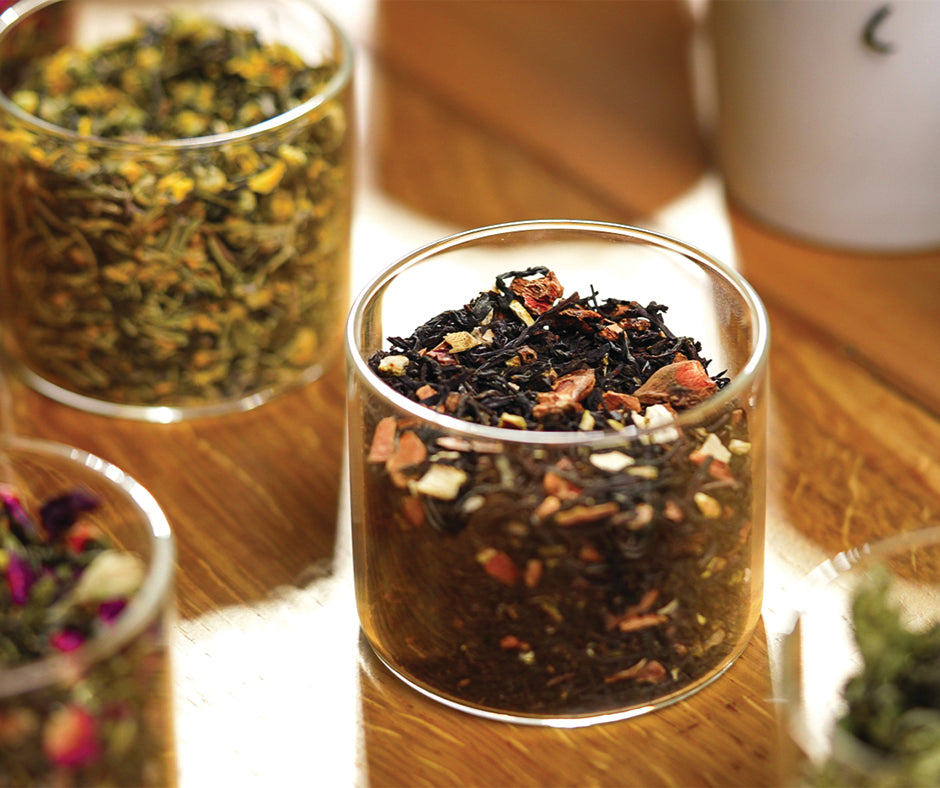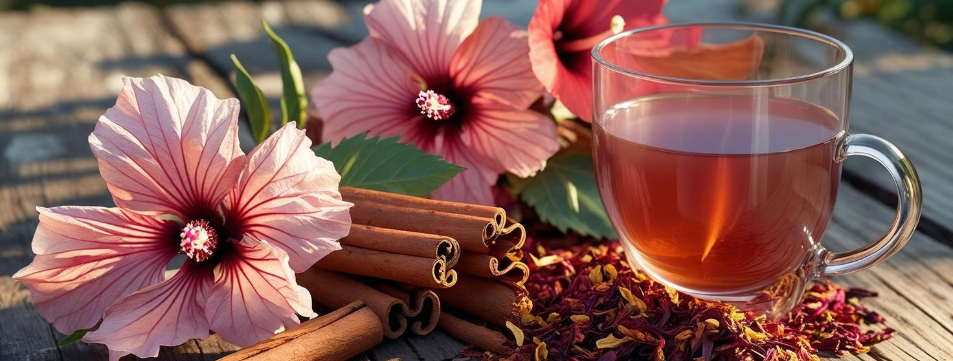Article: Does Jasmine Tea Have Caffeine? A Complete Guide to Caffeine, Content, and Benefits

Does Jasmine Tea Have Caffeine? A Complete Guide to Caffeine, Content, and Benefits
Jasmine tea is renowned for its floral elegance, aromatic richness, and calming nature. As a staple in traditional Chinese tea culture and increasingly popular worldwide, jasmine tea offers more than just flavor—it delivers a complete sensory experience. For tea lovers seeking a soothing beverage with potential wellness benefits, jasmine tea benefits range from relaxation to antioxidant support. But along with these perks comes a common question about jasmine tea's caffeine content, especially for those who are mindful of their daily caffeine intake.
However, for those who are health-conscious or sensitive to stimulants, a common concern arises: Does jasmine tea have caffeine? And if so, how much caffeine does jasmine tea contain? In this comprehensive guide, we’ll break down the caffeine levels in jasmine tea based on its base tea type, compare it with other caffeinated beverages, and highlight its health benefits and brewing techniques—so you can sip with confidence and clarity.
☕ What Is Jasmine Tea?
Let’s start with the basics.
Jasmine tea is a scented tea, typically made by blending true tea leaves (from the Camellia sinensis plant) with fresh jasmine blossoms. The blossoms are either layered with or infused into the tea leaves to absorb their aromatic oils.

Common Tea Bases for Jasmine Tea:
-
Green tea (most popular)
-
White tea
-
Oolong tea
-
Black tea
Important: Jasmine flowers themselves do not contain caffeine. However, the tea base determines the caffeine content. So jasmine tea does contain caffeine unless it’s made from a herbal base (like rooibos or chamomile), which is rare.
⚖️ Does Jasmine Tea Contain Caffeine?
Yes—unless labeled caffeine-free, jasmine tea contains caffeine.
The amount of caffeine in jasmine tea depends entirely on:
-
The type of tea leaves used
-
The processing method
-
How you brew the tea
Jasmine Tea Caffeine Content by Type:
|
Type of Jasmine Tea |
Typical Caffeine Content (per 8 oz) |
|
Jasmine Green Tea |
20–30 mg |
|
Jasmine White Tea |
15–20 mg |
|
Jasmine Oolong Tea |
30–45 mg |
|
Jasmine Black Tea |
40–70 mg |
|
Decaffeinated Jasmine Tea |
2–4 mg |
|
Herbal Jasmine Tea |
0 mg |
For reference:
-
Black coffee: 90–120 mg caffeine per 8 oz
-
Espresso: ~63 mg per shot (1 oz)
-
Matcha (1 tsp powder): ~70 mg per 8 oz
🎯 Factors That Influence Jasmine Tea Caffeine Levels
Even within the same tea type, the caffeine in jasmine tea can vary due to:
1. Leaf Grade & Type
-
Whole-leaf tea (common in loose leaves) has more caffeine than broken leaves (common in tea bags).
-
Younger buds (used in white tea or high-end green teas) may also have higher caffeine.
2. Processing Method
-
Green teas are minimally oxidized, retaining moderate caffeine.
-
Black teas are fully oxidized, often resulting in higher caffeine levels.
3. Brewing Time & Temperature
-
Steeping for longer or using hotter water increases caffeine extraction.
-
To reduce caffeine, steep jasmine green tea at 80°C (176°F) for 1–2 minutes.
4. Serving Size
-
A standard cup is 8 oz, but larger mugs or teapots (12–16 oz) will naturally deliver more caffeine.
🧘♀️ Jasmine Tea Benefits: More Than Just Caffeine
Jasmine tea is not only a gentler alternative to coffee—it also offers a variety of health benefits, especially when made with green or white tea bases.
1. Rich in Antioxidants
Green jasmine tea contains catechins like EGCG (epigallocatechin gallate), which help combat oxidative stress and reduce inflammation.
2. Supports Weight Loss
Caffeine and polyphenols in green tea may increase thermogenesis and fat oxidation, especially when consumed before exercise.
3. Improves Heart Health
Jasmine green tea may help:
-
Lower LDL cholesterol
-
Improve arterial function
-
Reduce risk of hypertension
4. Boosts Brain Function
The combination of caffeine and L-theanine provides calm alertness—enhancing focus without anxiety or crashes.
5. Calms the Mind
The aroma of jasmine is known to act as a mild sedative, reducing heart rate and alleviating anxiety. Even just smelling jasmine tea can be therapeutic.
6. May Help Prevent Chronic Diseases
Antioxidants in jasmine tea may reduce the risk of:
-
Type 2 diabetes
-
Neurodegenerative diseases
-
Certain cancers (with regular long-term consumption)
🌙 Is Jasmine Tea OK at Night?
Despite its calming scent, jasmine tea is not naturally caffeine-free. Even 20–30 mg of caffeine in green jasmine tea may disrupt sleep in sensitive individuals.
Tips for Evening Tea Drinkers:
-
Choose decaffeinated jasmine tea
-
Opt for herbal jasmine infusions (check labels)
-
Brew lightly with shorter steep times

❓ Frequently Asked Questions (FAQs)
Does jasmine tea have caffeine like coffee?
No. Jasmine tea has significantly less caffeine than coffee. Green jasmine tea contains ~25 mg per cup vs. 90–120 mg in coffee.
Is there caffeine in jasmine green tea?
Yes, typically 20–30 mg per 8 oz cup, depending on brew strength.
Can jasmine tea keep you awake?
Possibly. Jasmine tea has enough caffeine to boost alertness, especially if consumed in the evening.
Is jasmine tea good for anxiety?
Yes! Thanks to the aromatherapy benefits of jasmine flowers, jasmine tea may lower stress, promote calmness, and even improve mood.
Can I drink jasmine tea every day?
Absolutely. When consumed in moderation (2–3 cups per day), jasmine tea is safe and beneficial for most individuals.
📝 Conclusion
Does Jasmine tea have caffeine?
✔️ Yes—but not much.
If you're looking for a mildly caffeinated drink that offers antioxidants, focus, and calm energy, jasmine tea is a wonderful choice. Whether you're replacing your morning coffee or seeking an afternoon boost, jasmine tea hits the sweet spot between flavor, aroma, and wellness.
✅ Final Takeaways
-
Jasmine tea contains caffeine, usually 15–70 mg per cup depending on the base.
-
Most jasmine green tea has around 25 mg of caffeine—safe for most people.
-
It’s a great alternative to coffee with antioxidants and mood-boosting effects.
-
Choose decaf or herbal jasmine tea if you're caffeine-sensitive or sipping at night.



Leave a comment
This site is protected by hCaptcha and the hCaptcha Privacy Policy and Terms of Service apply.